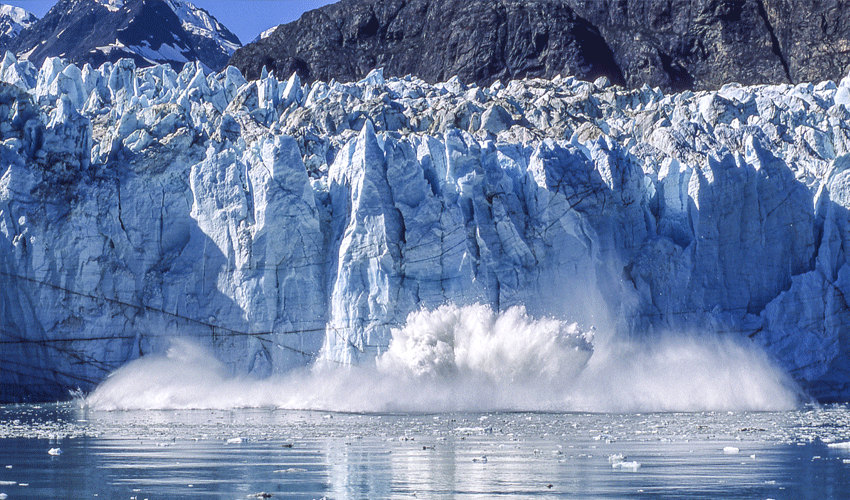A groundbreaking global study published in Nature has raised concerns over the accelerating melt of the world’s glaciers, which could have significant consequences for rising sea levels and freshwater availability.
The study, based on field and satellite data, reveals that between 2012 and 2023, ice loss increased by approximately 36% compared to the previous decade (2000-2011).
Professor Michael Zemp from the University of Zurich, a co-author of the study, described the findings as “shocking” but not entirely unexpected.
The research highlights that glacier loss is occurring much faster than previously predicted, and if this trend continues, sea levels may rise beyond earlier projections by the end of this century.
Smaller glaciers, in particular, are melting at an alarming rate, with many expected to disappear entirely by 2100.
“We are facing a higher sea-level rise than we expected before,” Zemp told AFP, warning that the loss of glaciers could severely impact freshwater supplies, especially in regions such as Central Asia and the central Andes, where water resources are heavily dependent on glacial melt.
According to the study, global glaciers have lost about 5% of their volume since the turn of the century, with regional variations. Antarctica has seen a 2% reduction, while glaciers in the European Alps have lost a staggering 40%.
On average, 273 billion tonnes of ice are melting each year, an amount equivalent to the water consumption of the entire global population for 30 years.
Coordinated by the World Glacier Monitoring Service (WGMS), the University of Edinburgh, and the Earthwave research group, this study provides a crucial reference for tracking global ice loss.
Professor Martin Siegert from the University of Exeter, who was not involved in the study, expressed deep concern over the findings. He noted that the rapid loss of ice could also provide critical insights into how Antarctica and Greenland’s ice sheets are responding to global warming.
“Ice sheets are now losing mass at a rate six times higher than they were three decades ago. When they change, we stop talking about centimeters and start talking about meters,” Siegert warned.
Zemp also emphasized the urgent need to address the root cause of glacier loss—greenhouse gas emissions.
“To save the world’s glaciers, we must reduce emissions,” he stressed.
“Every tenth of a degree of warming that we can prevent will save lives, save money, and prevent further damage.”



